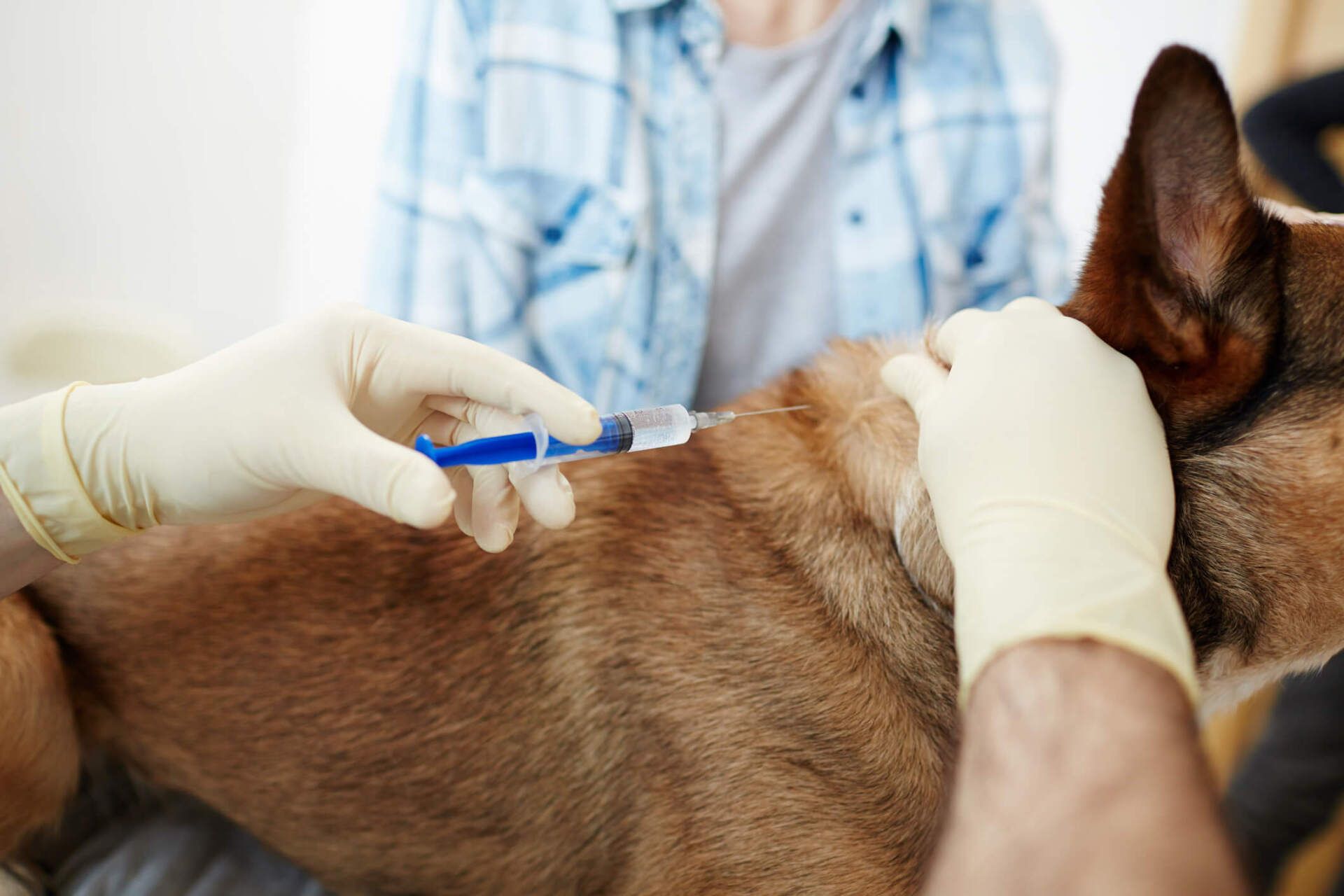4 Non-Core Vaccines to Consider for Your New Dog
websitebuilder • 5 November 2020

When you add a new dog to the family, going to the first vet appointment and getting vaccines is an essential part of the process. Many vets have essential vaccines for dogs including rabies, parvovirus, and canine hepatitis vaccines. Along with setting up a schedule for the essential vaccines, you have the option to schedule non-core vaccines.
A non-core vaccine is not a typical part of a dog's vaccine needs but can provide extra care and protection for the dog's life. Learn about four non-core vaccines to consider for your dog and ways the vaccine adds extra protection for their health.
1. Bordetella Bronchiseptica
The Bordetella bronchiseptica vaccine is simply shortened to the Kennel Cough vaccine because the shot will help protect your dog form the onset of kennel cough. The term "kennel cough" may seem misleading, especially if you rescued your dog or purchase the animal from a location without kennels.
The bacterial infection can actually occur in any social setting a dog is found in. Kennel cough may be transmitted through direct contact with other dogs, when dogs share the same bowl, or if you have to bring your dog to a daycare program while you work.
The vaccine will help prevent the onset of kennel cough and the dog will naturally help fight the bacteria away. If a dog is not vaccinated and gets kennel cough, the dog may suffer from breathing issues and inflammation which requires a lot more treatment than just getting the vaccine in the first place.
2. Giardia
One of the more common illnesses young puppies suffer from is giardia. The parasite infection occurs when the dog drinks or ingests contaminated water and food. When your dog suffers from giardia, they may have stomach issues and bowel issues like diarrhea. The illness occurs in younger puppies more as their curiosity uses them to roam, sniff, and eat random items.
To help prevent the stomach issues with your dog, consider a giardia vaccine. The vaccine will help fight the parasite and prevent any major problems associated with giardia. You will typically get the vaccine at one of the first vet visits for the dog.
3. Leptospirosis
Leptospirosis is a bacteria found in soil and water. If your dog likes to dig and splash, then the pet could be more of a risk for the bacteria. Rather than ingestion, leptospirosis can infect open wounds on the dog. For example, if a dog has a scratched up paw and steps into contaminated water, then the bacteria may get into the animal's system.
Signs of leptospirosis include fever and fatigue in your dog. Leptospirosis may show in many ways including trouble breathing or blood in the dog's stool. Along with concern for your dog's health, the leptospirosis bacteria has a chance to transfer from pets to humans.
The leptospirosis vaccine would not only help protect your pet but also everyone else in the house as well. If a human contracts leptospirosis, the condition could lead to kidney problems or other issues like meningitis.
4. Lyme disease
Even if your dog doesn't spend a lot of time outside, it doesn't take very long for a tick to attach to a dog's skin. One of the main diseases associated with ticks is Lyme disease. Fortunately, you can prevent the onset of Lyme disease with a vaccine.
When your dog has the Lyme disease vaccine you still need to be aware of ticks on their body but can feel better about spending extended time outdoors. You have more freedom to take your dog on hikes or long walks without worrying about Lyme disease.
Schedule a vaccination appointment with our professional vets at the Pet Medical Center Of Vero Beach
. We will provide you with extra information on the vaccines and answer any questions you have about your pet.
If left untreated, roundworms and hookworms can cause serious health problems for your pet. Read about the signs in this blog and how to take action.
Many pet owners overlook the importance of dental health in their pets. Read this blog to learn why dental health is so important for your animal companion.
Your beloved pets, whether our loyal canines or our independent felines, play an integral role in your life. Read on to learn how to manage their stress.
Dogs can suffer from a plethora of digestive issues. But how can you tell if your pup has any digestive issues? Discover some key signs to look out for.
A tick’s bite can spread deadly diseases to you and your pet. Learn about a few tick-borne conditions your pet may contract if they spend time outside.
Has your animal's hair changed? Discover what this might mean and if your best friend might need treatment for their potential problem.
Prepare your puppy for its first vet visit to avoid challenges during a medical examination. This post highlights five ways to help your puppy.
If your dog is pregnant, you might feel unprepared. Read this blog to learn everything you should know about canine pregnancy, labor, and delivery.
A surgery is an invasive procedure that requires preparation to ease your cat and ensure a smooth recovery. Discover tips to prepare your cat for surgery.
Just like humans, pets can face various health issues. Learn about the most common conditions that pets face and how to avoid and treat them.





